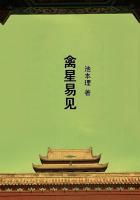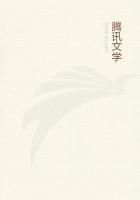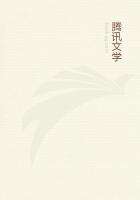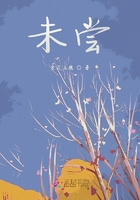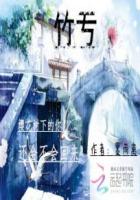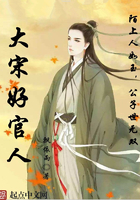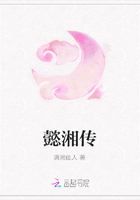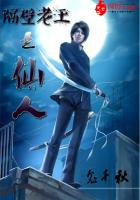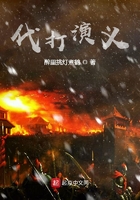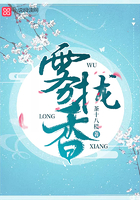There was nothing striking in the appearance of Chun Ah Chun. He was rather undersized, as Chinese go, and the Chinese narrow shoulders and spareness of flesh were his. The average tourist, casually glimpsing him on the streets of Honolulu, would have concluded that he was a good-natured little Chinese, probably the proprietor of a prosperous laundry or tailorshop. In so far as good nature and prosperity went, the judgment would be correct, though beneath the mark; for Ah Chun was as good-natured as he was prosperous, and of the latter no man knew a tithe the tale. It was well known that he was enormously wealthy, but in his case "enormous" was merely the symbol for the unknown.
Ah Chun had shrewd little eyes, black and beady and so very little that they were like gimlet-holes. But they were wide apart, and they sheltered under a forehead that was patently the forehead of a thinker. For Ah Chun had his problems, and had had them all his life. Not that he ever worried over them. He was essentially a philosopher, and whether as coolie, or multi-millionaire and master of many men, his poise of soul was the same. He lived always in the high equanimity of spiritual repose, undeterred by good fortune, unruffled by ill fortune. All things went well with him, whether they were blows from the overseer in the cane field or a slump in the price of sugar when he owned those cane fields himself. Thus, from the steadfast rock of his sure content he mastered problems such as are given to few men to consider, much less to a Chinese peasant.
He was precisely that--a Chinese peasant, born to labour in the fields all his days like a beast, but fated to escape from the fields like the prince in a fairy tale. Ah Chun did not remember his father, a small farmer in a district not far from Canton; nor did he remember much of his mother, who had died when he was six.
But he did remember his respected uncle, Ah Kow, for him had he served as a slave from his sixth year to his twenty-fourth. It was then that he escaped by contracting himself as a coolie to labour for three years on the sugar plantations of Hawaii for fifty cents a day.
Ah Chun was observant. He perceived little details that not one man in a thousand ever noticed. Three years he worked in the field, at the end of which time he knew more about cane-growing than the overseers or even the superintendent, while the superintendent would have been astounded at the knowledge the weazened little coolie possessed of the reduction processes in the mill. But Ah Chun did not study only sugar processes. He studied to find out how men came to be owners of sugar mills and plantations. One judgment he achieved early, namely, that men did not become rich from the labour of their own hands. He knew, for he had laboured for a score of years himself. The men who grew rich did so from the labour of the hands of others. That man was richest who had the greatest number of his fellow creatures toiling for him.
So, when his term of contract was up, Ah Chun invested his savings in a small importing store, going into partnership with one, Ah Yung. The firm ultimately became the great one of "Ah Chun and Ah Yung," which handled anything from India silks and ginseng to guano islands and blackbird brigs. In the meantime, Ah Chun hired out as cook. He was a good cook, and in three years he was the highest-paid chef in Honolulu. His career was assured, and he was a fool to abandon it, as Dantin, his employer, told him; but Ah Chun knew his own mind best, and for knowing it was called a triple-fool and given a present of fifty dollars over and above the wages due him.
The firm of Ah Chun and Ah Yung was prospering. There was no need for Ah Chun longer to be a cook. There were boom times in Hawaii.
Sugar was being extensively planted, and labour was needed. Ah Chun saw the chance, and went into the labour-importing business. He brought thousands of Cantonese coolies into Hawaii, and his wealth began to grow. He made investments. His beady black eyes saw bargains where other men saw bankruptcy. He bought a fish-pond for a song, which later paid five hundred per cent and was the opening wedge by which he monopolized the fish market of Honolulu. He did not talk for publication, nor figure in politics, nor play at revolutions, but he forecast events more clearly and farther ahead than did the men who engineered them. In his mind's eye he saw Honolulu a modern, electric-lighted city at a time when it straggled, unkempt and sand-tormented, over a barren reef of uplifted coral rock. So he bought land. He bought land from merchants who needed ready cash, from impecunious natives, from riotous traders' sons, from widows and orphans and the lepers deported to Molokai; and, somehow, as the years went by, the pieces of land he had bought proved to be needed for warehouses, or coffee buildings, or hotels. He leased, and rented, sold and bought, and resold again.
But there were other things as well. He put his confidence and his money into Parkinson, the renegade captain whom nobody would trust.
And Parkinson sailed away on mysterious voyages in the little Vega.
Parkinson was taken care of until he died, and years afterward Honolulu was astonished when the news leaked out that the Drake and Acorn guano islands had been sold to the British Phosphate Trust for three-quarters of a million. Then there were the fat, lush days of King Kalakaua, when Ah Chun paid three hundred thousand dollars for the opium licence. If he paid a third of a million for the drug monopoly, the investment was nevertheless a good one, for the dividends bought him the Kalalau Plantation, which, in turn, paid him thirty per cent for seventeen years and was ultimately sold by him for a million and a half.

